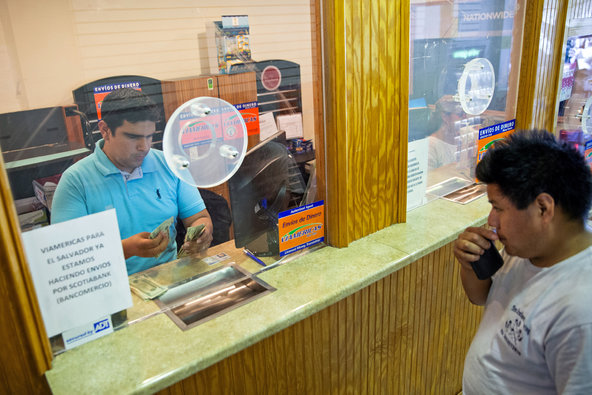
While Mexico may be most affected — nearly half of the $51.1 billion in remittances sent from the United States in 2012 ended up in that country — the banks’ broad retreat over the last year is affecting other countries in Latin America and parts of Africa, as well. The banks are being held accountable not only for the customers who directly use their money transfer services, but also for their role in collecting remittances from money transmitting companies and wiring them abroad.
“This is transforming the business and may increase the costs of international money transfers,” said Manuel Orozco, a senior fellow at the Inter-American Dialogue, a research group in Washington.
JPMorgan Chase and Bank of America have scrapped low-cost services that allowed Mexican immigrants to send money to their families across the border. The Spanish bank BBVA is reportedly exploring the sale of its unit that wires money to Mexico and across Latin America. And in perhaps the deepest retrenchment by a bank, Citigroup’s Banamex USA unit has now closed many of its branches in Texas, California and Arizona that catered to Mexicans living in the United States and stopped most remittances to Mexico, as it faces a federal investigation related to money laundering controls.
Regulators say the banking system was being exploited by terrorists and drug lords seeking to launder money. While they have not banned banks from engaging in higher-risk businesses such as money transfers to certain countries, they acknowledge that banks must now invest significantly more to monitor the money moving through their systems or face substantial penalties.
But the government’s efforts to root out illicit activity have effectively put the banks into a law enforcement role, industry experts say. And the result is undercutting another public policy goal — helping immigrants, who are primarily low income, move into mainstream banking. Even with the current relatively low remittance fees, the costs can still add up. Some Latin American immigrants say they regularly send three remittances a week to pay for last-minute school supplies or rent.
Manuel Santiago, a 48-year-old Mexican living in Queens, said he sometimes pays $4 to send as little as $20 at a time to his son and daughter in Mexico. “I am supporting my family and things come up irregularly,” he said.
The pendulum has swung so far, participants in the industry say, that regulators are pushing banks out of some activities considered beneficial to the broader economy.
“The money transfer business has become the whipping boy of regulators who want to show how tough they are,” said Paul S. Dwyer Jr., chief executive of Viamericas, a money transfer company based in Maryland with a large focus on Mexico.
Read more at dealbook.nytimes.com.


